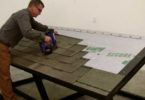Foreclosures in the US are increasing again. According to a RealtyTrac report, one of the main reasons is that lenders have started processing their backlog of defaults again. When the robo-signing scandal hit in 2010, it had a big impact on stalling foreclosures in America. Now that things have died back down, the lenders are at it again. This now means that foreclosure proceedings have started on about 311,000 US homeowners.
Ironically, however, this new wave of foreclosures will affect more than just homeowners. There are a large number of already foreclosed homes on the lists that are doomed to face a new type of proceedings. Some of the biggest banks in the US stand to lose their REO properties to HOA foreclosures.
JP Morgan Chase Facing Foreclosure
In April 2010, JP Morgan Chase foreclosed on a condo in Homestead, Florida. After taking ownership of the property, they put it up for auction. But, no one bought the condo. In the meantime, the bank continues to be the owner of the REO property. This left JP Morgan Chase responsible for the monthly Homeowners’ Association (HOA) maintenance dues. But, according to Keys Gate Community Association, they never made one payment. Two years later, the association is actively pursuing foreclosure proceedings against the lender for the $20,000 they’re owed.
Ben Solomon, the Association Law Group attorney for Keys Gate, says this isn’t an isolated incident. It’s becoming a trend in the state of Florida, and presumable across the US. He says it’s not about one or two months of missed maintenance dues. Two years is a long time to avoid payments and ignore requests from the association. Currently, the law group is preparing dozens of similar proceedings. Solomon says that he, personally, knows of hundreds of cases like this one. The number of banks facing foreclosures because of homeowners’ dues is increasing daily.
And, there’s even more, according to the JP Morgan Chase Bank v. Keys Gate Community Association lawsuit. The big bank has made even bigger mistakes causing the suit to become even more complex. They’ve dug themselves into an even deeper hole, adding to their own financial woes. In early July 2012, they were finally able to find a buyer for the condo at one of their foreclosure sales. The buyer thought they got a great deal, purchasing the property for just $43,000. But, now the new owner is also a defendant in the suit, as they’re considered to be “jointly and severably liable” for the homeowners’ dues. In the last two years, this one condo has gone through three foreclose proceedings. Now, because of the choices made by JP Morgan Chase, it’s facing its fourth.
Other Banks Facing Foreclosure
In 2009, Deutsche Bank foreclosed on a home in Broward County. They also neglected to pay maintenance fees. This has resulted in Southbridge Homeowners Association filing a lien against the home. They also filed a foreclosure suit in an effort to get the bank to pay, or take possession of the property to recoup their losses. It took two and a half years, but in June, the bank finally decided to take them seriously. This past June, Deutshe Bank finally paid association dues back payments that amounted to tens of thousands of dollars.
Chase Home Finance also neglected to pay homeowners’ maintenance dues. As the owners of a Palm Bay Yacht Club condo in Miami, Florida, the became responsible for the dues when they foreclosed on it. For over nine months, Chase Home Finance never paid one payment to the HOA for their REO home. Finally, just last week, the lender decided to contact the HOA to make arrangements to resolve the matter and avoid foreclosure. This was only after the courts had already scheduled a summary judgment hearing which they knew they had no chance of winning.
Banks in Foreclosure is a Growing Trend
Solomon says that every big bank in the US is “wrapped up” is this growing trend. So far, there have been cases filed against Aurora, Penny Mac, Washington Mutual, HSBC, GMAC, Countrywide, US Bank, Bank of America, Wells Fargo, Bank of New York and Citibank. In Florida alone, about 40% of housing development units have become delinquent on monthly dues. This is when you combine both the defaulting homeowners and the defaulting big banks.
Here’s a brief list of cases where the Association Law Group had to proceed with filing foreclosures for their HOA clients:
- JP Morgan owes $19,108 to Keys Gate Community for two years worth of unpaid dues.
- Deutsche Bank now owes $23,383 to Horizons West POA for more than 20 months of unpaid dues.
- The Bank of New York owes $16,750 to Palms HOA for 18 month of unpaid dues.
- Chase Home owes $34,617 to Palm Bay Yacht Club for more than nine months of unpaid dues.
- Citibank now owes $19,697 to Aquasol for more than seven months of unpaid dues.
These “second defaulted owner” cases prolongs the foreclosure crisis in the US. It also causes the value of other properties in the community to drop, as these foreclosures become their competition. Lastly, by not paying their portion of the maintenance costs, they drive up the monthly dues of other homeowners in the development. The HOAs must make up for their loses by increasing the dues, or else they have to result to cutting many of the community’s amenities.
<>
<>



